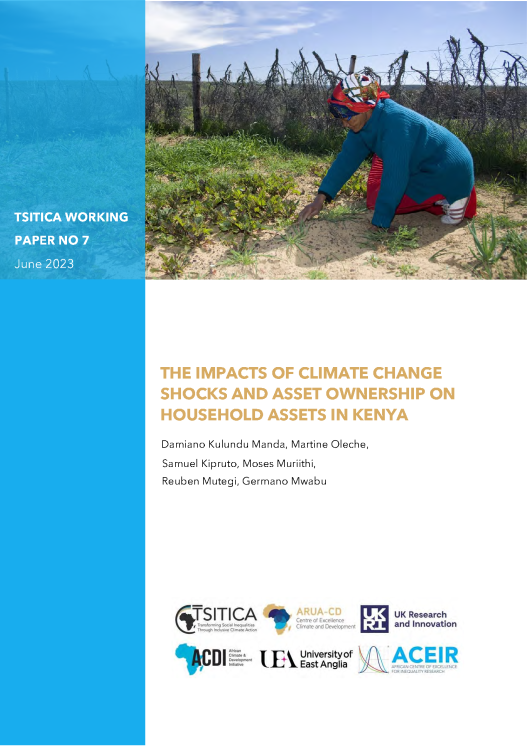The impacts of climate change shocks and asset ownership on household assets in Kenya
Damiano K. Manda, Martine Oleche, Samuel Kipruto, Moses Muriithi, Reuben Mutegi, Germano Mwabu
TSITICA Project Working Paper no. 7, June 2023.
Published by ARUA Centre of Excellence in Climate Change and Development & African Centre of Excellence for Inequality Research.

The main objective of this study is to analyse the impacts of climate change shocks and asset endowments on household welfare - proxied by per adult consumption expenditure. In addition, the study assesses whether the impacts differ between the poor and the non-poor, and the extent to which asset ownership and access to credit can help cushion against the negative effects of the shocks. To achieve the study’s objective, we use household data merged with county-level data on climate change shocks to examine the impacts of the shocks on household wellbeing using control functions. The results demonstrate that climate change shocks reduce household welfare, with impacts being more pronounced for rural than for urban populations. Furthermore, poor households are much more affected by climate change shocks than the non-poor, irrespective of residence status. Generally, asset ownership and credit access help mitigate the negative welfare effects of climate shocks. There is some evidence that social protection schemes can complement the welfare cushioning roles of assets and credit in contexts of climate change. Read more
TSITICA was a collaborative, multi-country interdisciplinary research project. It brought together two ARUA Centres of Excellence with researchers from the universities of Ghana, Nairobi and Cape Town, and from the UK universities of Bristol, East Anglia and Manchester and the London School of Economics. The support of the African Research Universities Alliance and UK Research and Innovation are gratefully acknowledged. Visit project website.
